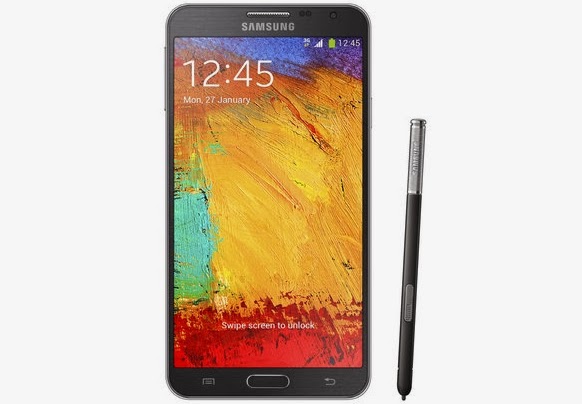Replacing scalpels with scanners :- Digital autopsy
Malaysian entrepreneur Mathavan (Matt) Chandran hopes to largely negate the need to slice open bodies at autopsy by using raw data from Multi Slice Computerized Tomography (MSCT) and processing it through sophisticated software on high performance computer systems.
 |
Plans are underway to provide a digital alternative to traditional autopsy |
His digital autopsy software exploits the power of existing 2D and 3D imaging and visualization equipment to observe and investigate the human body using high definition imagery.
Whilst autopsy rates have drastically fallen since the 1950’s when 60 percent of deaths were investigated on the slab, there are still autopsies carried out in 10-20 percent of deaths. In America alone, there are over 100,000 malpractice suits filed every year that require investigation. Autopsies are carried out, usually by pathologists, for either legal or medical reasons. A forensic autopsy is undertaken if the cause of death indicates a possible crime has been committed.
 |
Digital Autopsy Software Solution or iDASS is the forensic specific 3D visualization engine for Digital Autopsy |
Chandran, CEO of iGene, a subsidiary of the InfoValley Group, believes that reducing family trauma and “placating religious sensibilities” are key driving factors in move toward minimally invasive autopsies. Other benefits include secure retrieval of data, both binary and 3D imaging, from central servers as well as the ability for law courts, forensic centers and hospitals to easily access that data.
A typical up-to-date MSCT scanner either Computerized Tomography (CT/CAT) or Magnetic Resonance Imaging (MRI) costs in the region of $80,000 to $300,000 and can go up in price to $1.2 million depending on features.
Additional non-invasive diagnostic tools such as angiography and toxicology are also integrated into the digital autopsy facility which uses existing medical scanners from the likes of Siemens, General Electric, Toshiba and Philips. Chandran plans to open 18 facilities in England starting in October 2013, positioning them close to UK mortuaries. He plans to charge $780 (£500) for the service which would be optional over a state paid traditional autopsy.
There are skeptics to the digital autopsy but Chandran has big dreams including the possibility of scanning every living soul that goes in for a medical checkup. Waiting six weeks to get a MRI scan from the National Health Service (NHS) in UK and another month for the results is not unheard of, giving rise to potential spinoffs beyond the scope of the digital autopsy.
iGene has indicated that it will invest up to $77 million in the project and has received funding from Agensi Inovasi Malaysia (AIM) to the tune of $22.7 million.
Malaysian entrepreneur Mathavan (Matt) Chandran hopes to largely negate the need to slice open bodies at autopsy by using raw data from Multi Slice Computerized Tomography (MSCT) and processing it through sophisticated software on high performance computer systems.
His digital autopsy software exploits the power of existing 2D and 3D imaging and visualization equipment to observe and investigate the human body using high definition imagery.
Whilst autopsy rates have drastically fallen since the 1950’s when 60 percent of deaths were investigated on the slab, there are still autopsies carried out in 10-20 percent of deaths. In America alone, there are over 100,000 malpractice suits filed every year that require investigation. Autopsies are carried out, usually by pathologists, for either legal or medical reasons. A forensic autopsy is undertaken if the cause of death indicates a possible crime has been committed.
Chandran, CEO of iGene, a subsidiary of the InfoValley Group, believes that reducing family trauma and “placating religious sensibilities” are key driving factors in move toward minimally invasive autopsies. Other benefits include secure retrieval of data, both binary and 3D imaging, from central servers as well as the ability for law courts, forensic centers and hospitals to easily access that data.
A typical up-to-date MSCT scanner either Computerized Tomography (CT/CAT) or Magnetic Resonance Imaging (MRI) costs in the region of $80,000 to $300,000 and can go up in price to $1.2 million depending on features.
 |
Multi-planar reconstructions tracking metal using the digital autopsy software |
Additional non-invasive diagnostic tools such as angiography and toxicology are also integrated into the digital autopsy facility which uses existing medical scanners from the likes of Siemens, General Electric, Toshiba and Philips. Chandran plans to open 18 facilities in England starting in October 2013, positioning them close to UK mortuaries. He plans to charge $780 (£500) for the service which would be optional over a state paid traditional autopsy.
There are skeptics to the digital autopsy but Chandran has big dreams including the possibility of scanning every living soul that goes in for a medical checkup. Waiting six weeks to get a MRI scan from the National Health Service (NHS) in UK and another month for the results is not unheard of, giving rise to potential spinoffs beyond the scope of the digital autopsy.
iGene has indicated that it will invest up to $77 million in the project and has received funding from Agensi Inovasi Malaysia (AIM) to the tune of $22.7 million.





Comments
Post a Comment